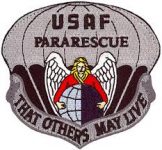Is It Really In The Bible?
Some people tell others, “It’s in the Bible.” Most people never look it up to make sure. Other things are portrayed as being in the Bible. Those portraying or telling what’s in the Bible sound convincing, so people accept the statements as facts. For instance, ask someone what the serpent offered Eve in the Bible. The answer is usually an apple. Yet, apple is not in the Bible as the fruit Eve consumed. The Bible never says what type of fruit Eve ate, only that it was a fruit. Could it have been an apple? Yes. However, it could just as easily be a cherry, fig, olive, peach, pear, or some other fruit from a fruit-bearing tree. The Bible implies the tree Eve ate from is the only one of its kind and grown only in Eden. Therefore, logic reveals the tree would be unknown to present-day people, making its fruit of an unknown type also.
The apple is in the Bible as a fruit (or tree) only in the books of Joel, Proverbs, and Song of Solomon.
Catholic is not in the Bible text either. The only place you find the word Catholic in the Bible is in the heading titles for the books of James, 1 Peter, 2 Peter, 1 John, 2 John, 3 John, and Jude in the Greek. The titles are translated from Catholic in the Greek to the word General in the English. Therefore, the word Catholic never appears in the English Bibles.
Trinity is yet another word not found in the Bible, neither is the word Triune. Quite a few Christian faiths use the words Triune God and Trinity. The Bible states clearly YaHVaH is ONE, so where do they get this idea of Triuneness or Trinity? From several instances in the Bible, actually. The words Triune and Trinity must be defined to see their implications. Triune implies three aspects that are actually one entity. IN OTHER WORDS, THE WORD MEANS SOMETHING THAT IS ONE, BUT HAS 3 SEPARATE ASPECTS TO THE ONE THING, YET UNIFIED. This word could fit the Biblical interpretation of Elohiym. Elohiym, a Hebrew word, means a plurality, yet refers to YaHVaH. The Bible describes YaHVaH as Elohiym, His Son as Elohiym, and the Holy Spirit as Elohiym. Some would say this makes them 3 separate entities working as one, which is the definition of the word Trinity, three things acting as one. Yet, the Bible says one cannot act without the others; thereby, negating the possibility of separateness and proving Trinity false. All three are unified as one Elohiym, acting in concert. 1 John 5:7, a disputed verse in the New Testament, shows all three as unified as one. The Bible then supports the definition of our Elohiym as a single Triune Elohiym, but does not support our Elohiym as a Trinity because Trinity would mean He is three separate Elohiyms, which we know to be completely false.
Many more things are not mentioned in the Bible, some of which did not exist during the time of the writing of the Bible. For example: Airplanes, automobiles, computers, electricity & electrical items, guns, lights, missiles & rockets, power boats, satellites, spacecraft, tanks, telephones, television, and trucks. Other things are not mentioned because YaHVaH chose not to mention them. For example: What uniforms the Roman soldiers wore, what colors and designs were on the Israelite banners, exact height and weights of Israelis, age of marriage, other people beyond Israel’s surrounding areas (such as Chinese, Gauls, Britons, American Indians, Incas, South African people, and Russians), and trading routes to those same areas.
What things are in the Bible? For one, YaHVaH’s people are instructed to BLESS HIM! Deuteronomy 8:10, “You will eat and you will be satisfied, and bless YaHVaH, your Elohiym, for the good land that He gave you.” See also Judges 5:2, 9 and all throughout Psalms. In Genesis 12:3 YaHVaH says, “I will bless those who bless you, and him who curses you I will curse; and all the families of the earth shall bless themselves by you.” He is speaking to the Israelites, so Bless them, Bless YaHVaH, and you will be blessed.
Crime is in the Old Testament in Job 31:11 and Ezekiel 7:23. In the New Testament, crime can be found in Acts 25. However, the crime of the devil (pride) is in 1 Tim. 3:6. The English (KJV) says condemnation in that verse, but the Greek word is krima (krima). Krima is where we get the English word crime, and in the Greek-English Interlinear N.T. by George Ricker Berry, he translates krima as crime in that verse.
Genocide against Israel, YaHVaH’s people, is in Exodus 1:22 and Matthew 2:16. In both cases, the genocide is being carried out by killing all the Israeli baby boys, yet keeping the girls for other purposes. On the other hand, Israel practiced genocide in the conquest of Canaan territory (at YaHVaH’s instruction). They killed not only baby boys, but every living soul (men, women, & children), including animals in some cases. However, in some of Israel’s conquests, only men were killed and the women and girls were taken as spoils for the soldiers to be their wives and slaves.
What of the “Golden Rule?” Yes, it is in Matthew 7:12, “Therefore all things whatsoever ye would that men should do to you, do ye even so to them; for this is the law and the prophets” KJV. Providing for one’s own is in 1 Timothy 5:8, “But if any provide not for his own, and specially for those of his own house, he hath denied the faith, and is worse that an infidel” KJV. Does that negate the providing for others? No, common sense proves out that it is impossible to provide for others if you have not first taken care of your own needs.
Most of our moral values and statements come from the Bible. Part of the morality is sexual laws. Lev. 18:6-19 and 20:10-19; and Deut. 23:1 and 27:20-23 contain the lists of forbidden sexual relations and practices. Several verses refer to types of incest, yet several instances of incest can be found in the Bible before these laws. The first provable act of incest is Genesis 11:29; however, in looking at Gen. 4:17 and 5:4, Cain could have married his sister. Cousins are not in the list of forbidden relations. Though some U.S. states forbid 1st cousins to marry, almost all U.S. states allow 2nd cousins to marry. Rape, punishable by prison time in the U.S., has a different punishment in the Bible: death for everyone, except those who rape an unbetrothed virgin. Deut. 22:28-29 specifies that a man who takes an unbetrothed virgin “. . . shall give the father of the girl fifty silver [shekels], and she shall become his wife, because he has afflicted her; he cannot divorce her all his life” (Tanach, Stone Edition). Lifetime punishment!
Many people state that the Bible forbids multiple wives, yet that is not the case. Numerous references can be found showing the Bible allows for multiple wives. Abraham, Esau, Jacob/Israel, King David, and King Solomon to mention only a few. Deuteronomy 21:15 specifically mentions, “If a man will have two wives. . .” (Tanach, Stone Edition). Another Scripture specifies the treatment of all wives should be equal. What about Paul’s words? Paul actually specifies who should have only one wife: overseers (bishops/elders in KJV) and assembly servants (deacons in KJV). Why would Paul feel the need to specify these people as husbands of one wife if everyone is to have only one wife? Because Paul saw marriage as a distraction to serving YaHVaH, yet marriage is a Biblical principle. Therefore, Paul is suggesting in Titus and 1 Timothy those who serve the assembly to only have one wife so they would be less distracted. Paul was celibate and he wished all who served could be celibate as he was, yet to prevent sin (and because of Jewish tradition that all men should marry) Paul allows for marriage. The flip side of this is: Paul also says to obey the law of the land. The law of the land in the U.S. is ONE WIFE and YaHVaH expects us to follow the law. If we were in another country which allows multiple wives, we would follow the law over there with the condition that we treat all the wives equally.
Soap (spelled sope in KJV) and its opposite, nitre, are both in the Bible. See Jer. 2:22, Prov. 25:20, and Mal. 3:2. In Hebrew, soap is boriyth בּוֹרִית, a vegetable alkali, and nitre is nether נֶתֶר, a potash mineral (so called from effervescing with acid).
The majority of people are familiar with the Ten Commandments, even if they are not a believer. However, if you ask people what is the 4th Commandment, the reply would most likely be; “Honor or Observe the Sabbath.” Although this is correct, it is only correct in part. The rest of the 4th Commandment states, “Six days shall you labor and accomplish all your work;” Deut. 5:13 (Tanach, Stone Edition). That’s right, the Commandment also says you SHALL work 6 days. It is not necessary to work at a paid job for 6 days because there are things needing to be done around the home which constitutes as work, such as mowing the grass, fixing the car, washing laundry, driving to the store for food, etc. However, the 4th Commandment does not end there either. It goes on further to say the Sabbath prohibition of work applies to “you, your son, your daughter, your slave, your maidservant, your ox, your donkey, and your every animal, and your convert within your gates, in order that your slave and your maidservant may rest like you” Deut. 5:14 (Tanach, Stone Edition). This means you are forbidden to have others do the work for you also.
Does the Bible forbid drinking, gambling, or smoking? Drinking is not forbidden, but being a drunkard or drunkardness is forbidden. The drinking of wine is an essential part of Jewish culture and even Yahoshua (Yeshua) turned water into wine for a wedding. During Passover (Pesach) there is a tradition of making sure everyone, even the poor, have at least 1¼ gallons of wine to drink for celebrating the feast.
Interestingly, neither gambling nor smoking (cigars or cigarettes) is mentioned in the Bible. Games of chance are not even mentioned. The closest the Bible comes to gambling is the advice to not rely on things of chance. Tobacco, an herb, according to the Bible is for meat and to be eaten, not smoked. Yet, there is no prohibition to smoking it or any other herb. In the New Testament; however, there is a command to not put anything into your body that would defile the body (temple of YaHVaH). Smoking does defile the lungs and contributes to many other health problems.
In conclusion, the Bible teaches: Eve (Chavvah) ate a fruit of unknown type, Catholic is not in the Scriptures, YaHVaH is not a trinity, all people should Bless YaHVaH and Israel, crime is in there, genocide was practiced by both Israel and people against Israel, there is a Golden Rule, a person should not neglect his own, the number of wives is dictated by the law of the land instead of the Bible (except those in service of the assembly), people washed with both soap and nitre, people are to work 6 days and not work their servants, children, animals, or converts on the Sabbath, and the 3 vices common to our current society are not actually forbidden (drinking only allowed not unto drunkenness). The Bible also does not cover all things.
The object of this article is not to promote or dissuade a particular behavior or belief, but to expose the truth of what is and what is not in the Bible. It is up to each person to read and research the Scriptures, to seek advice and counsel from YaHVaH through the Holy Spirit, and to decide how to choose his/her own way of life. The Bible is not always cut-and-dry on a subject. Sometime, YaHVaH leaves gray areas so that His believers will seek Him for the advice. YaHVaH commands us to deal honestly with others, and honesty means admitting only the truth spoken of in the Scriptures. We may speak our beliefs on the subject, but we must not say it is in the Scripture if it is not. YaHVaH may choose different paths for different people. To cause a person to stray from YaHVaH’s path is a greater error. SHALOM!!!
First published 4-2009, © 2009, 2018 Odon Obadyah Ministries, Inc. and Min. Dr. Donald H. Garrett
Return to Articles by Min. Garrett







